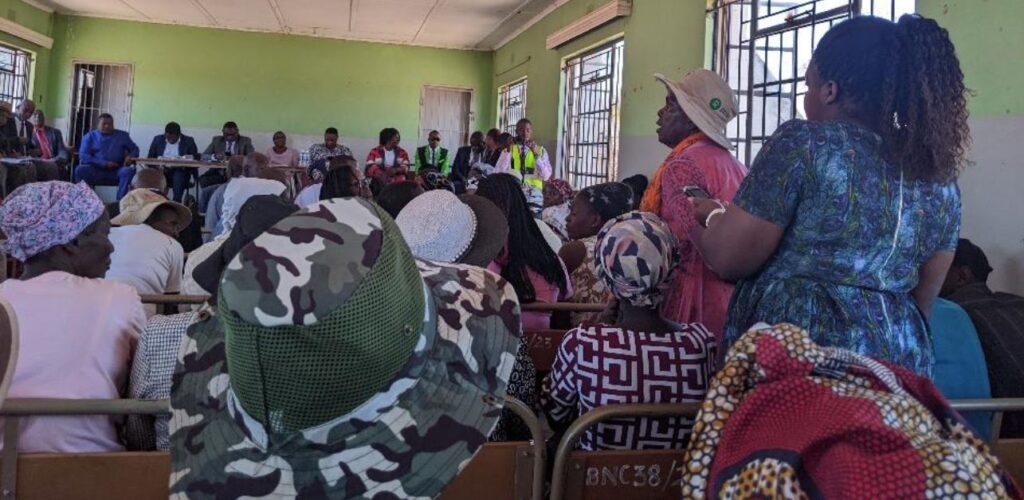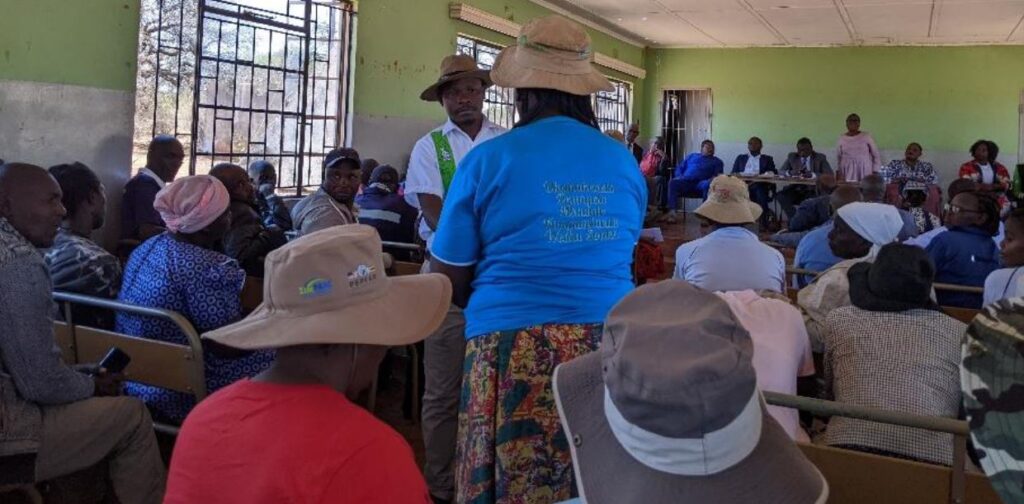A new voice in Zimbabwe’s budget: Care work takes center stage in Bubi District
For years, parliamentary budget consultations in Zimbabwe’s districts felt like routine exercises, with discussions often defaulting to familiar topics like road rehabilitation and school maintenance. But October 2024 marked a significant turning point in Bubi District, as community members, with crucial support from Bekezela HBC, care champions, and other stakeholders, amplified an often-invisible plea: investments in infrastructure that support unpaid care work.
The national budget consultative meeting at Tatazela Hall was packed, drawing representatives from all sectors of the community. Among them were dedicated care champions who had traveled long distances on foot, determined to ensure that unpaid care work would not be overlooked.

After the chairperson opened the floor, Mrs. Bishop, a resolute care champion, rose to speak. She eloquently articulated the daily challenges faced by women and girls burdened with care responsibilities, highlighting the urgent need for public childcare centers and solarized piped water systems to be included in the upcoming fiscal year’s budget. Her powerful call resonated deeply, sparking a ripple of agreement among attendees. Soon, other women shared their own stories of how severe water shortages and inadequate infrastructure were profoundly affecting their daily lives.
The meeting saw an impressive turnout of 122 people, with approximately 88 of them being caregivers. Among these, 10 were WE-Care champions, demonstrating the organized and impactful presence of this vital advocacy group. The diverse participation also included 12 officials from government line ministries, 14 ward councillors, and 8 representatives from civil society organizations and the private sector, showcasing broad engagement with the issue.
Adding to the chorus, Mrs. Elina Moyo further emphasized the critical need for the government to improve healthcare access. She pointed out that some wards lacked community health centers, forcing women to travel over 10 kilometers to the nearest rural health center to secure healthcare for their families. Mrs. Moyo also stressed the importance of establishing elderly care facilities within the district. Such facilities, she argued, would free up women’s time, enabling them to pursue small income-generating initiatives, as much of their current time is consumed by caring for the elderly.

Toward the close of the meeting, Dr. Mlilo, the CEO of Bubi Rural District Council, publicly acknowledged and rallied around the issues raised by the care champions. He noted that for the local authority to truly support care infrastructures like day care centers and clinics, it was crucial for the government to timely and adequately disburse Devolution Funds. Building on this momentum, the care champions made concrete written submissions to the parliamentarians, meticulously detailing the care issues that warranted prioritization in the next financial year.
This consultative meeting in Bubi District signifies a pivotal shift. It’s a testament to how dedicated advocacy, driven by the very people affected, can elevate previously unheard concerns to the highest levels of national resource allocation discussions. The focus on unpaid care work this year ensures that the invisible labor that underpins communities finally gains the recognition and investment it so desperately needs.
The first photo shows a care champion presenting care issues to parliamentarians during the budget consultative meeting in Bubi District, while the second photo shows a care champion submitting care issues to the parliamentary committee. Photos by Faith Sharleen Nkala/Bekezela HBC
